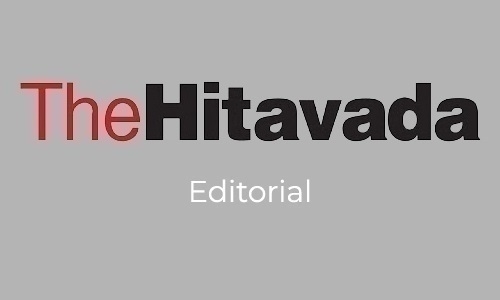‘MOST EXPANSIVE’
| Date :08-Dec-2024 |

EXTERNAL Affairs Minister Dr. S. Jaishankar stated
the fact when he said that the Quad mechanism
comprising India, the United States, Australia, and
Japan was growing and was one of the ‘most expansive’ inter-governmental frameworks. The agenda
of Quad and Dr. S. Jaishankar’s statement both reflect instrumental role being played by India in ushering in an era of
multilateralism in what may be called as the emerging New
World Order.
Though the Quad grouping came into existence as a counterweight to the Communist China’s expansionism with a
hegemonicintent,itsagendahasevolvedintosomethingwider
in the larger interest of the international rules-based order.
India has been opposed to expansionism, aggression, violationofsovereigntyofcountries,andterritorialconflicts.There
was a time when some powers in the world had started treating this as weakness. However, over the past decade, India
has adopted a very dynamic approach in geopolitics, economy, and diplomacy. Gradually, perception about India has
changed. Today, Prime Minister Mr. Narendra Modi and his
team including an astute Dr. S. Jaishankar are being considered as architects of this image makeover.
One of the core ideas of this makeover process has been
India’s insistence on practice of multilateralism. India successfully exhibited to the world thatthe days of bipolar world
order, bilateralism, Old World Order institutions were gone.
While doing so, India expressed her willingness in engaging
with powers from different blocs. Afterinitial skepticism was
over, India drove home the point that new world meant giving voice to the emerging powers as well as creating new
forumstoincreaseco-operationandreduceconflicts.COVID19pandemicandits impactontheglobal supplychainsmade
the worldrealisemeaningfulness, creative approach,andsincere intentions of India to ensure global peace and uphold
international rules-based order.
As a result, whatever India says is being heard seriously
across the globe. Also, several global groupings want India
to be a part of them. This is quite evident from the fact that
India is a well-respected member of Shanghai Cooperation
Organisation, G-20, BRICS, BIMSTEC, Quad etc. With her
approach of‘positive diplomacy’, India ensured platform for
Global South countries, expanded G-20 by including the
African Union, and also played an active role in expanding
BRICS by way of BRICS+ mechanism. Being a key member,
India did not allow various groupings to impose expansionist agendas upon respective zones of influence. While doing
so, India has been championing the cause of reforming the
Old World Order institutions like the United Nations.
WhenDr. S. Jaishankar saidthatQuadwas growing ininfluence, he meant growing in strength as a constructive force
toreckonwithbeyondtheimmediateIndo-Pacificbrief.With
the inauguration of Mr. Donald Trump’s US Presidency in
January 2025, the Quad grouping is likely to get more boost.
This boost will be forthe greater good. It is against this backdrop that Dr. Jaishankar’s use of the phrase ‘most expansive’
must be viewed. Because, the word ‘expansive’ relates to deepening of ties and does not reflect the territorial expansionistdesigns.WhenIndiahosts theQuadSummitnextyear,
all eyes will be on her as the usher of practical multilateralism with expansive cooperation at the heart of endeavours.
